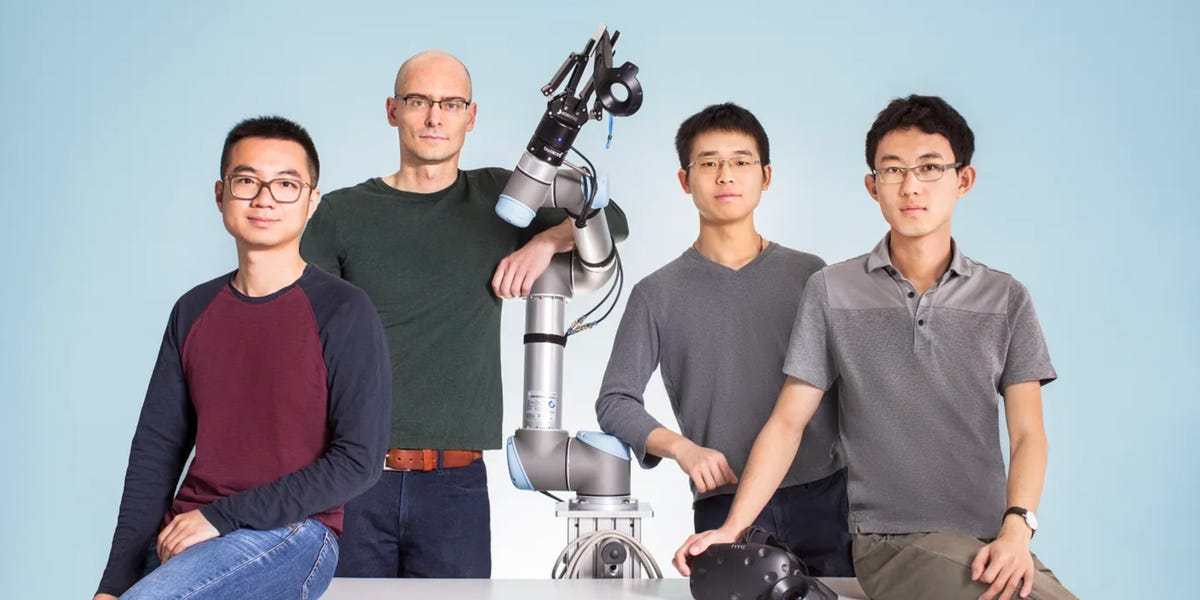- Warehouse robots are often limited to specific tasks they are pre-programmed to perform.
- Covariant, a robotics startup, is developing software that uses AI to help make them more adaptable.
- The software helps robots to learn like chatbots to handle mistakes, NYT reported.
Thanks for signing up!
Access your favorite topics in a personalized feed while you’re on the go.
download the app

A startup founded by former OpenAI researchers is developing software that can help make robots more adaptable to their environments, allowing them to handle more complex tasks and have a higher tolerance for randomness.
Covariant, a California-based startup, is using neural networks — the same machine-learning process that powers the AI in ChatGPT — to make software that gives robots the ability to communicate with their operators and perform various tasks by learning from large amounts of data rather than depending on preprogramming, The New York Times reported.
Traditional warehouse robots are often limited to a specific task, such as picking up a certain-sized box, that they will then repeatedly execute.
But with Covariant’s software, a robot could be told by a user, writing a command in English, to “pick up a banana” despite never seeing what a banana looks like, according to the Times.
The robot learns that a banana is a curvy, yellow fruit much like how ChatGPT learns from large amounts of datasets.
Covariant collected years of data that show how robots operate and combined that data with large amounts of text to develop software that will give the robots the ability to perform more complex tasks and communicate with their users in plain English, The Times reported.
The underlying technology is called RFM, or robotics foundational model.
In one demonstration posted on the Covariant’s YouTube channel, a robot senses in front of it a box containing a small amount of groceries. An operator then asks the robot, “Are there any fruits in the bin?” to which the robot replies, “Yes. I see apples and bananas.”
A user can then command the robot, “Pick up all the red apples,” showing that the robot has the ability to handle randomness.
Covariant was founded in 2017 by Pieter Abbeel, Peter Chen, Rocky Duan, and Tianhao Zhang. Abbeel is a professor at the University of California, Berkeley, who served as the Ph.D. advisor for the three other founders. Abbeel, Chen, and Duan are also former OpenAI researchers.
Since its founding, Covaraint has secured around $222 million in funding, Business Insider previously reported. And the company’s software already powers sorting robots in warehouses across the globe, according to the Times.
The new software that is powered by RFM, however, is not perfect. The Times reported that the robots still make mistakes and may not understand every command or will sometimes drop objects.
But by relying on the same underlying technology ChatGPT uses, the robots powered by Covariant’s software can learn through trial and error.
“It ingests all kinds of data that matter to robots — that can help them understand the physical world and interact with it,” Peter Chen, cofounder and CEO of Covariant, told the Times.
A spokesperson for Covariant did not respond to a request for comment from Business Insider.


